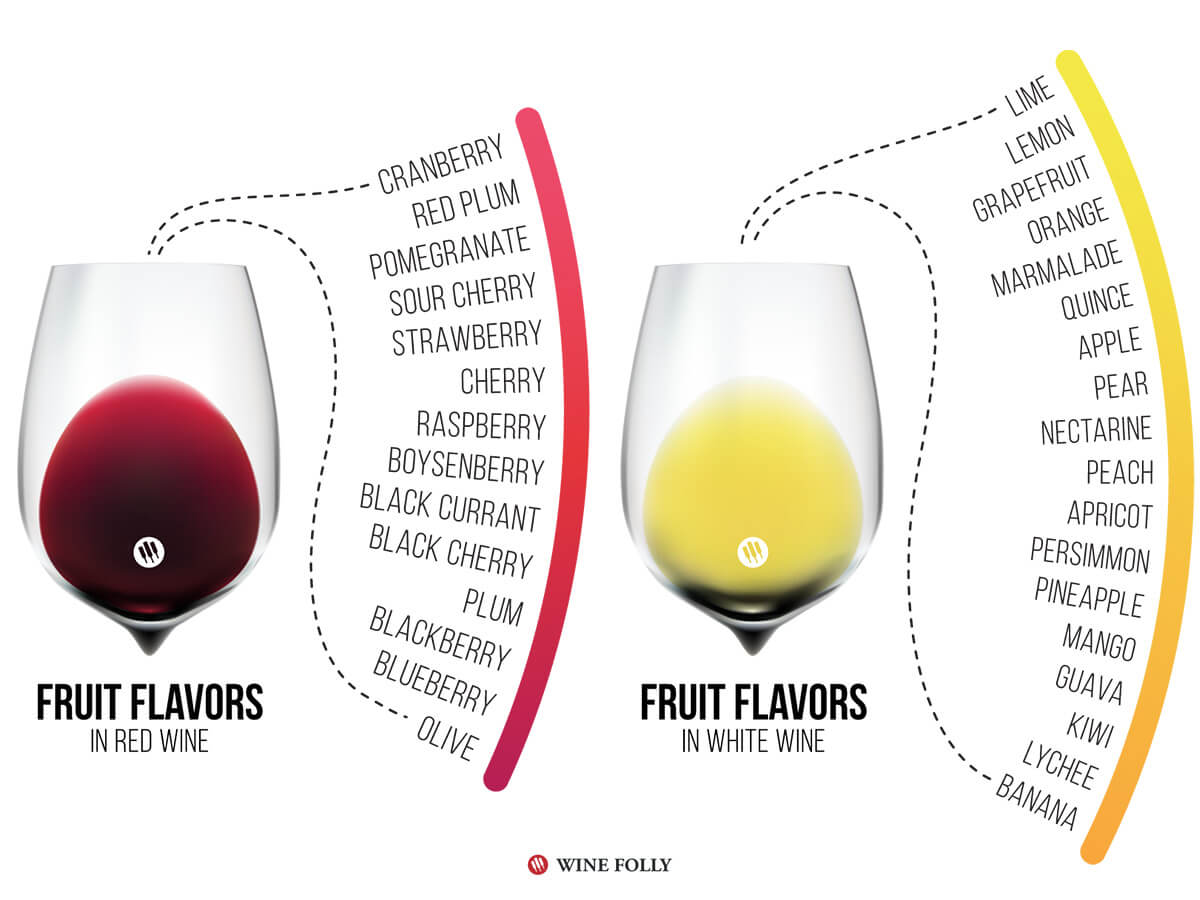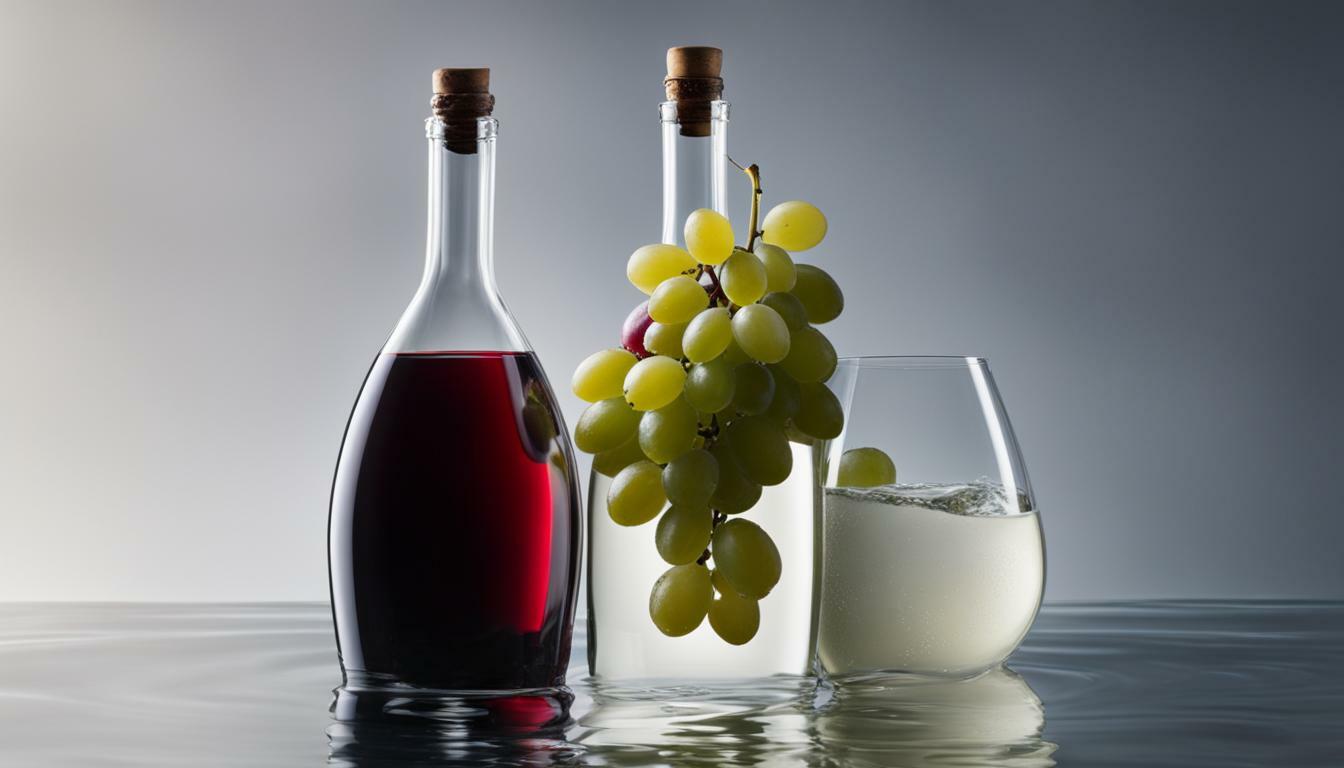Is It Healthier To Drink Red Or White Wine? Uncorking The Facts
Many of us wonder about the choices we make for our well-being, and that includes what we sip. When you’re thinking about a nice glass of wine, a common question pops up: Is it healthier to drink red or white wine? It’s a pretty interesting thought, isn't it? People often hear different things, and it can be a bit confusing to sort out what’s what.
For quite some time, red wine has had a bit of a glowing reputation, often linked with heart benefits and a long life. But what about white wine? Does it just sit there, offering little to the health conversation, or does it have its own good points? It’s a good idea to look at both sides, because, you know, things aren't always as simple as they seem.
This article aims to clear up some of that haze, looking at what makes each type of wine unique. We'll explore the various components, consider their potential effects on your body, and, perhaps most importantly, talk about how much you drink. So, in a way, let’s explore this together and see what we find out.
Table of Contents
- The Core Components: What's in Your Glass?
- Digging a Little Deeper: Specific Health Aspects
- "My Text" Says: Healthier, Happier, Friendlier
- It's Not Just the Color: Other Factors Matter
- Frequently Asked Questions
The Core Components: What's in Your Glass?
When we talk about wine, it’s not just about the color. Each type, red or white, gets its unique qualities from the grapes used and how it’s made. This process, you see, really changes what ends up in your glass. Understanding these differences helps us figure out what might be doing what inside our bodies. It's pretty interesting, actually, how much goes into it.
Red Wine's Claim to Fame: Antioxidants
Red wine, as a matter of fact, gets its deep color and much of its reputation from the grape skins. When red wine is made, the grape skins stay in contact with the juice for a longer time during fermentation. This extended contact is rather important because the skins are where a lot of the good stuff lives. These include compounds like resveratrol, which is often talked about, and various polyphenols.
Resveratrol, you know, is a plant compound that acts like an antioxidant. Antioxidants are substances that can protect your body's cells from damage caused by unstable molecules, sometimes called free radicals. This cellular protection is a big part of why people associate red wine with certain health advantages. There are, for instance, other polyphenols too, like anthocyanins, which give red wine its color, and tannins, which contribute to its taste and feel in your mouth. All these bits and pieces, in a way, work together.
Many studies have looked into these compounds, and some research suggests they might help with things like reducing inflammation and supporting heart well-being. Of course, it’s not a magic bullet, but the presence of these particular compounds is a key reason red wine often comes up in health talks. It's almost like a little package of plant power, you could say.
White Wine: A Lighter Touch?
White wine, on the other hand, is typically made by fermenting grape juice without the skins. This means it doesn't pick up as many of those skin-derived compounds that red wine does. So, while white wine still contains some antioxidants, they're generally present in smaller amounts and are often different types. For example, white wine might have more tyrosol and caffeic acid, which are also antioxidants, but perhaps not as widely studied as resveratrol in the context of wine.
Does this mean white wine is "less healthy"? Not necessarily, you know. It simply means its composition is different. White wine can still be a part of a balanced lifestyle for many people. It often has a lighter flavor profile, and some prefer it for that reason. Its potential effects on the body might be different, but that doesn't make it inherently bad. It's just, well, different.
The absence of certain compounds found in red wine means white wine isn't usually highlighted for the same specific health claims. However, it still contains other beneficial components, including some vitamins and minerals, albeit in small quantities. So, while its antioxidant profile might be less robust than red wine's, it's not entirely devoid of good things. You might say it offers a different kind of experience, both in taste and, arguably, in its subtle health contributions.
Digging a Little Deeper: Specific Health Aspects
Beyond the general components, people often want to know how red and white wine might affect specific parts of their health. It's a very common curiosity, especially when we're trying to make choices that feel good for us. Let's look at a few areas where wine's influence is often discussed. We really want to get to the bottom of this, don't we?
Heart Health: A Common Question
This is probably the most talked-about area when it comes to wine and health. Red wine, particularly, has been linked to heart health benefits in many studies. The resveratrol and other polyphenols in red wine are thought to help protect the lining of blood vessels in your heart. They might also help reduce "bad" cholesterol and prevent blood clots, which is a pretty big deal for heart well-being.
However, it’s really important to remember that these benefits are often seen with moderate consumption. Drinking too much alcohol, of course, can have the opposite effect, potentially harming your heart and leading to other serious health issues. So, it's a bit of a balancing act, isn't it? While red wine often gets the spotlight here, some research suggests that moderate alcohol intake in general, including white wine, might have some cardiovascular benefits, but perhaps to a lesser degree than red wine.
The key takeaway here, as a matter of fact, is that if there are heart benefits from wine, they come from very sensible amounts. It's not an excuse to drink a lot, you know. People often overlook this crucial part of the message.
Gut Health and the Microbiome
The gut microbiome, which is the community of tiny living things in your intestines, has become a very hot topic in health circles lately. Interestingly, some newer research is looking into how wine might affect this complex system. Preliminary studies suggest that certain compounds in red wine, like polyphenols, could act as prebiotics. Prebiotics, basically, are food for the good bacteria in your gut.
This means red wine might, in a way, help support a diverse and healthy gut flora. A diverse gut microbiome is often associated with better overall health, including immune function and even mood. White wine's impact on gut health is less clear, perhaps because it has fewer of those specific polyphenols. Still, this is an area of ongoing research, and we're just beginning to understand the full picture. It's pretty fascinating, isn't it, how everything connects?
Calorie Count and Weight Management
When thinking about health, calories certainly come into play, especially for those watching their weight. Generally speaking, both red and white wines contain calories, mostly from the alcohol itself and any residual sugars. White wines, particularly drier ones, tend to have slightly fewer calories per glass than red wines, though this isn't always a huge difference. For instance, a typical glass of dry white wine might have around 120-130 calories, while a glass of red wine could be closer to 125-150 calories, or even more for sweeter varieties.
It's important to remember that these are just averages, and the exact calorie count can vary a lot based on the specific wine, its alcohol content, and how much sugar is left after fermentation. So, if you're keeping an eye on your calorie intake, you might lean towards a drier white wine. However, the bigger picture is always about overall diet and activity, not just one drink. You know, it's all part of a larger plan.
The Role of Alcohol Itself
It's very important to address the elephant in the room: alcohol. While wine contains beneficial compounds, it also contains alcohol, which is a psychoactive substance and, in large amounts, a toxin. The potential health benefits of wine are almost always tied to very moderate consumption. Any benefits seen from compounds like resveratrol can be easily outweighed by the negative effects of too much alcohol.
Excessive alcohol intake can lead to liver damage, heart problems, increased risk of certain cancers, and issues with mental well-being. So, you see, the health discussion around wine isn't just about the grapes; it's heavily about the alcohol content and how much you consume. It's a really fine line, and something to keep in mind, always.
"My Text" Says: Healthier, Happier, Friendlier
When we talk about making choices that feel better for us, the idea of "healthier" often comes up. In some discussions, like those found in "My text," there's a point made about how we use words like "healthier" versus "more healthily." The original text mentions that while "eating more healthily" might seem grammatically more precise to some, "eating healthier" is often used and can sound better in everyday talk. This really highlights how language evolves and how we communicate about well-being.
The essence of "My text" suggests that "healthier" is a term people readily understand and use to describe a choice that promotes better well-being. For instance, it says, "You might say, i suggest changing the food to another, healthier one." This perspective is pretty relevant to our wine discussion. We're not just looking for something that is technically "more healthy" in a strict scientific sense, but something that contributes to feeling "healthier" in a broader, more personal way.
The text also touches on "friendlier" and "happier," which, you know, speaks to the overall experience and feeling. A choice that makes you feel healthier, happier, and maybe even more sociable (in moderation, of course) can contribute to your overall quality of life. So, when we ask, "Is it healthier to drink red or white wine?", we're not just looking for a scientific breakdown of compounds. We're also asking, in a way, which choice aligns better with our personal sense of well-being and enjoyment, considering everything.
The phrase "The population in its entirety is getting healthier" from "My text" suggests a general trend towards improved well-being. This reflects a collective desire to make choices that contribute to feeling better, and wine, for some, is part of that lifestyle. It’s about seeking things that, in a way, make life feel a little more vibrant and contribute to a sense of vitality. So, it’s not just about the numbers, but how we experience our choices.
It's Not Just the Color: Other Factors Matter
While we've spent time looking at the differences between red and white wine, it's really important to step back and see the bigger picture. The color of your wine is just one piece of a much larger puzzle when it comes to your health. There are many other things that play a much more significant role in your overall well-being. So, you know, let's consider these broader points.
Moderation is Key
This point, honestly, cannot be stressed enough. Any potential benefits from wine, whether red or white, are almost entirely dependent on drinking in moderation. What does moderation mean? For most adults, it’s generally defined as up to one drink per day for women and up to two drinks per day for men. A "drink" in this context is usually about 5 ounces of wine. Exceeding these amounts can quickly turn any potential benefits into health risks. It’s pretty straightforward, actually.
Drinking too much can lead to liver disease, increased risk of certain cancers, high blood pressure, and a weakened immune system, just to name a few problems. So, if you don't already drink, health experts usually don't recommend starting just for the supposed benefits. And if you do drink, keeping it moderate is the most important health consideration, by far. It's really about balance, you know.
Individual Responses
People are different, and so are their bodies' responses to alcohol and other compounds in wine. What might be fine for one person could affect another differently. Things like genetics, existing health conditions, medications you might be taking, and even your age can influence how your body processes alcohol and other substances. For example, some people might be more sensitive to sulfites in wine, which can cause reactions, regardless of whether it's red or white.
So, what feels "healthier" for one person might not be the same for another. It’s always a good idea to listen to your own body and, if you have any concerns, talk to a healthcare professional. They can give you advice that's just right for your unique situation. It's almost like a personal puzzle, isn't it?
Lifestyle as a Whole
The impact of wine on your health is really just a tiny part of your overall lifestyle. Your diet, how much you exercise, whether you get enough sleep, manage stress, and avoid smoking all play a much, much bigger role in your long-term health than whether you choose red or white wine. You know, it's the bigger picture that counts.
If you eat a balanced diet full of fruits, vegetables, and whole grains, stay active, and live a generally healthy life, then enjoying a moderate glass of wine, whatever the color, is unlikely to be the deciding factor in your health. It's about looking at your habits as a whole, not just isolating one thing. So, in some respects, focus on the bigger picture first.
Ultimately, the decision of whether to drink red or white wine, or any alcohol at all, should be a personal one, made with awareness of your own health and habits. It's about what makes you feel good and supports your well-being, without overdoing it. Learn more about healthy lifestyle choices on our site, and you might also find this page useful for general well-being tips.
Frequently Asked Questions
Which wine is better for your heart?
Red wine often gets more attention for heart health because of its higher content of antioxidants like resveratrol, which some studies suggest can help protect blood vessels. However, any potential heart benefits are tied to very moderate consumption. Excessive drinking, whether red or white, can actually harm your heart. So, it's less about which is "better" and more about how much you drink, you know?
Does white wine have any health benefits?
Yes, white wine does contain some antioxidants, though generally in smaller amounts and different types than red wine. It can also be part of a balanced diet when consumed in moderation. Some research suggests moderate alcohol intake in general, including white wine, might have some benefits, but these are usually less pronounced than the specific claims made for red wine's compounds. It's not entirely without good points, arguably.
What are the downsides of drinking wine?
The main downside of drinking wine, or any alcohol, is the alcohol itself. Drinking too much can lead to serious health problems like liver damage, increased risk of certain cancers, high blood pressure, and addiction. Even moderate drinking might not be suitable for everyone, especially those with certain health conditions or who are taking particular medications. It's really important to be aware of these risks, you see.

Red Wine and White Wine: Which Is Healthier? - Comfort Nutrition

Red Wine Vs White Wine: The Real Differences Wine Folly, 57% OFF

Is Red Wine Healthier Than White Wine? Unveiling the Truth